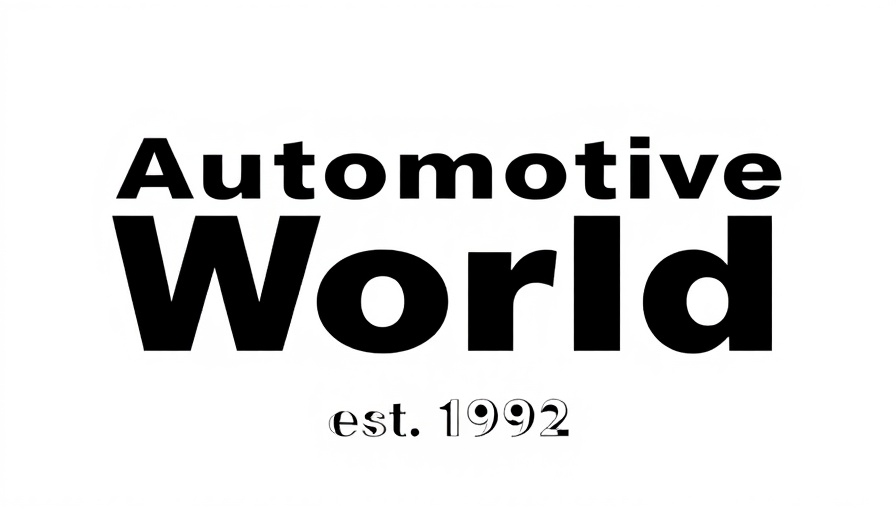
The Crucial Implications of Potential US Tariffs on German Autos
The ongoing dialogue surrounding potential US tariffs has significant repercussions for both American consumers and the German automotive industry, as emphasized in the latest statement from VDA President Hildegard Müller. The transatlantic partnership between the US and Germany has been pivotal, fostering stability and growth in both economies.
In a move that has been described as provocative by Müller, proposed tariffs of 25% on European cars could disrupt a flourishing trade relationship. In 2023, over 900,000 vehicles were produced by German manufacturers in the US, with nearly half earmarked for export. This manufacturing prowess not only supports local jobs within the industry but also signifies the United States' integral role in the global automotive market.
The Economic Stakes Involved
With an employment figure of approximately 138,000 in the US automotive sector, German investment is a cornerstone of the industry. Müller remarked, "Further tariffs would directly hit the American economy and make products for US consumers more expensive." It's likely that if these tariffs are enforced, the economic consequences will cascade beyond car prices, influencing various sectors reliant on automotive supply chains.
In 2023 alone, US exports of vehicles worth €8 billion to Germany positioned 'Made in the USA' vehicles at the top of import statistics in Germany by value. Müller argues that the German automotive sector thrives on mutual respect and cooperation, which could be jeopardized by aggressive tariff policies.
Caution Against Global Trade Conflicts
Müller also forewarns of the spiraling effects of tariff disputes, where counter-tariffs could ignite broader global trade conflicts with adverse effects on the world economy. She emphasizes that, rather than mitigating inflation, rising prices fueled by protectionist tariffs could burden American consumers—contrary to commitments made by President Trump to lower inflation rates.
"Isolation only knows losers," she stated, reiterating that the false narrative of the European sales tax as a trade barrier overlooks the equal treatment it provides to both imports and domestic sales. Transparency and dialogue are crucial for maintaining healthy trade practices.
Looking Ahead: The Need for Cooperation
It remains critical for the EU to proactively engage with the US to avert escalating tensions around trade. Müller advocates for diplomatic channels to address and negotiate tariffs while considering the broader implications for all stakeholders involved. Discussions on regulatory cooperation could foster mutual benefits and reaffirm the importance of international trade in maintaining economic vitality.
The automotive sector is truly a reflection of global interconnectedness. Regardless of the political landscape, many dealership principals and automotive industry leaders understand that the ongoing stability of trade relations not only fosters their own success but upholds a more comprehensive vision of economic prosperity across both the Atlantic and beyond.
In conclusion, as dealership principals, it is essential to keep abreast of these developments. Understanding potential shifts in tariffs and trade relations can enable better decision-making in uncertain economic times.
 Add Row
Add Row  Add
Add 




 Add Row
Add Row  Add
Add 

Write A Comment